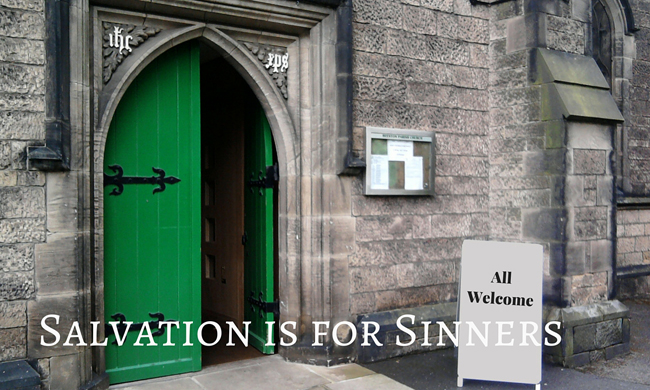THEOLOGY & APOLOGETICS
Can an LGBTQ person be saved?
By Denise Baum


Note: This article was already schedule to run this week. It's divine timing that it coincides with the horrible tragedy at the nightclub in Orlando. For those affected by the shooting, our prayers are with you. And please know that, no matter the sexual or gender orientation, if your murdered loved one trusted Jesus for their salvation, they are in heaven.
Inappropriate comments will be deleted.

Guess what?
Salvation is for sinners.
Christians know that, but it is so easy to forget. We are so inclined to think that we have to be good for God to accept us. We'd be in loads of trouble if this was true. But we come to God with humility and repentant spirits, just as we are. God says, "But this is the one to whom I will look: he who is humble and contrite in spirit and trembles at my word" (Isaiah 66:2). Of course we feel shame; we should. But God knows everything anyway. It would be silly to try and hide, like Adam and Eve after they ate the forbidden fruit. We have to be willing to be honest and transparent. Then God starts his wonderful redemptive work in us.
Anyone, no matter what their sexual or gender identity, may come to God for salvation. As Genesis 1 teaches us, God created sexuality for men with women. He also created people to be male and female. To deny God's original intent about this is a perversion of creation and therefore sin. But, an LGBTQ person is invited to come to God with a contrite heart for salvation just like any other sinner. All sinners meet at the foot of the cross where no sin ranks higher or lower than another. "For whoever keeps the whole law but fails in one point has become accountable for all of it" (James 2:10).
Can an LGBTQ person go to heaven? Yes. IF they believe in Jesus for salvation. Only saved people go to heaven. Just like a person cannot be good enough to be saved, they cannot be good enough to go to heaven. BUT, when we receive salvation as a free gift, the Holy Spirit is God's next gift to us. His presence in our hearts begins a cleansing and transforming process which we call sanctification. "Therefore, if anyone is in Christ, he is a new creation. The old has passed away; behold, the new has come" (2 Corinthians 5:17). After salvation, an LGBTQ person, just like any other sinner, will be empowered by God's Spirit to say no to old sins. Contemporary culture calls this going straight. Not a new idea, just a new way of expressing it.
It is important to realize that when we become Christians, our bodies are not saved. We know this because of 1 Corinthians 15:50: "I tell you this, brothers: flesh and blood cannot inherit the kingdom of God, nor does the perishable inherit the imperishable." When we enter eternity with God in heaven, we receive new bodies. Until then, we walk around in flesh which still desires to sin.
This is the picture of Romans 6-8. Paul writes that he knows that he is new creature in Christ Jesus, but his flesh still wants to sin. Every Christian lives with the very discouraging struggle between their saved hearts and unsaved bodies. The saved heart desires righteousness but the unsaved body wants to sin. But there is hope. "But if Christ is in you, although the body is dead because of sin, the Spirit is life because of righteousness" (Romans 8:10). God gives us the freedom and power to rise above the temptations of the flesh. "They who wait for the Lord shall renew their strength; they shall mount up with wings like eagles" (Isaiah 40:31). As the eagle floats effortlessly on the wind in the sky, so, through Christ, we can rise above our fleshly desires, saying no to sin and yes to righteousness.
Image Credit: alan feebery; "beeston church open door"; Creative Commons
Tags: Biblical-Salvation | Biblical-Truth | Controversial-Issues | Eternity-Forever | God-Father | Jesus-Christ | Witnessing-Evangelism
comments powered by Disqus
Published 6-13-16

